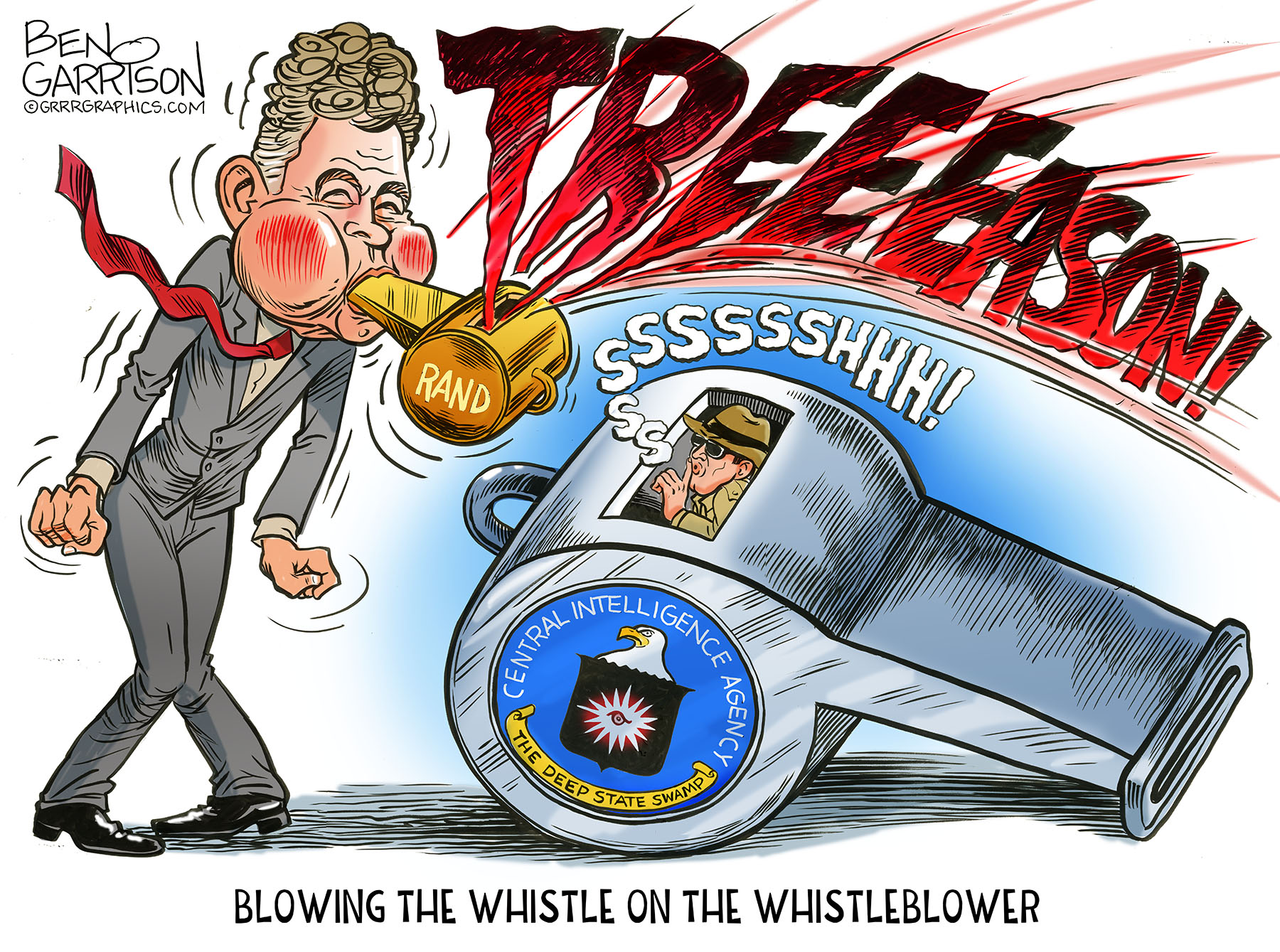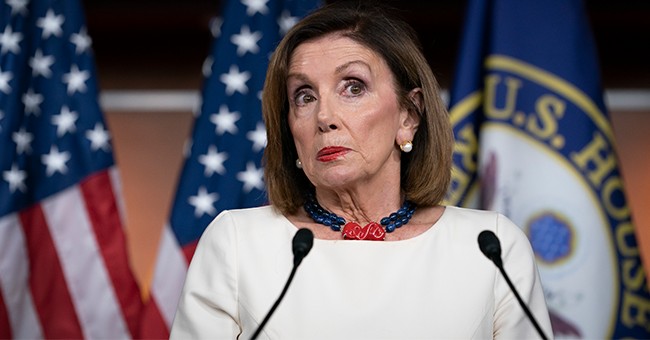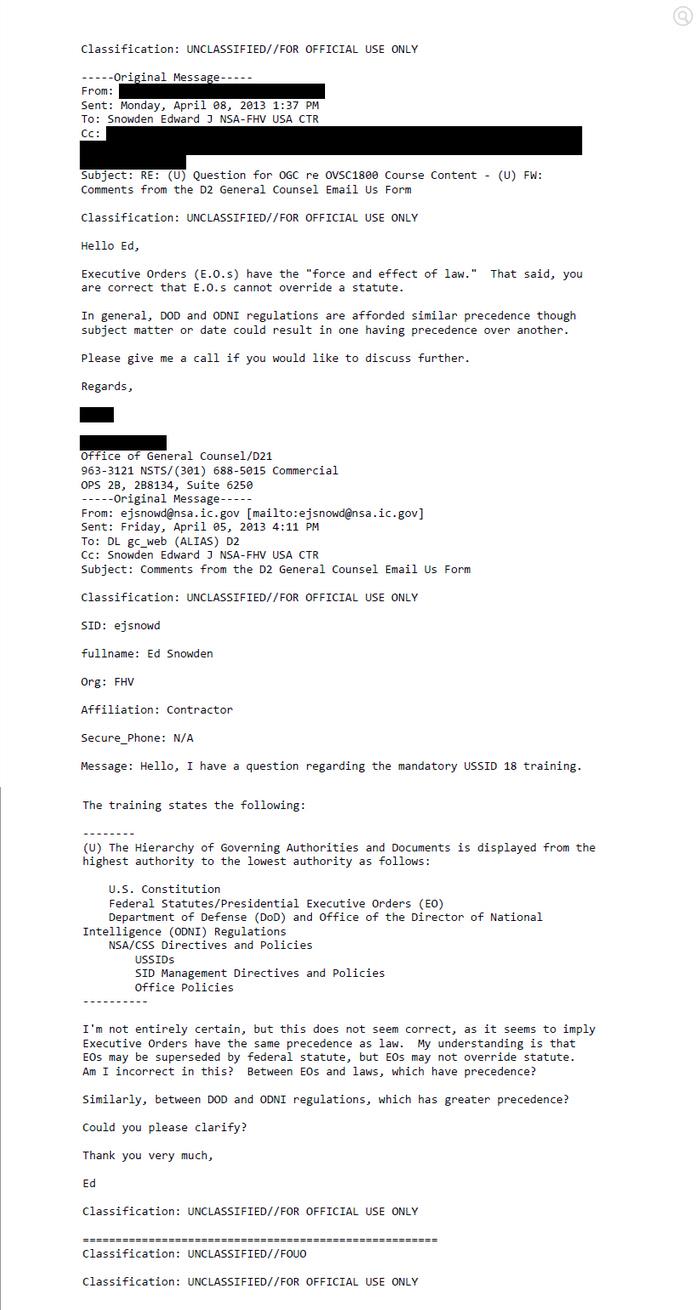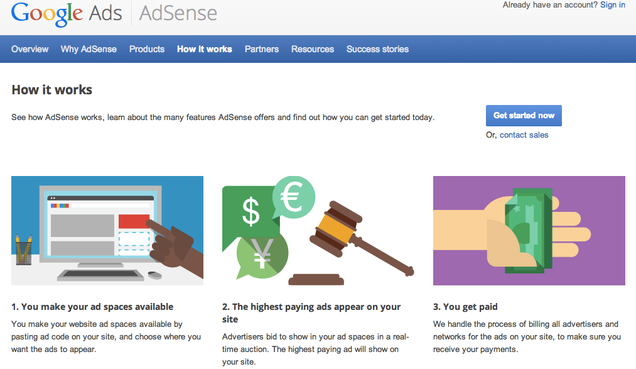When nearly a year ago we reported about the case of “Goldman whistleblower” at the NY Fed, Carmen Segarra, who alleged she was wrongfully terminated after she flagged “numerous conflicts of interest and breaches of client ethics [involving Goldman] that she believed warranted a downgrade of Goldman’s regulatory rating” and which were ignored due to the intimate, and extensively documented on these pages, proximity between Goldman and either one-time NY Fed Chairman and former Goldman director Stephen Friedman or current NY Fed president and former Goldman employee Bill Dudley, we said:
as everyone knows, both Bill Dudley and Stephen Friedman used to be at Goldman, and as we noted Dudley and Goldman chief economist Jan Hatzius periodically did and still meet to discuss “events” at the Pound and Pense.
So while her allegations may be non-definitive, and her wrongfful termination suit is ultimately dropped, there is hope this opens up an inquiry into the close relationship between Goldman and the NY Fed. Alas, since the judicial branch is also under the control of the two abovementioned entities, we very much doubt it.
There was hope, but as we said: we doubted it would lead to much more. It didn’t: in April, the NY Fed won the dismissal of her lawsuit:
U.S. District Judge Ronnie Abrams in Manhattan ruled that the failure by the former examiner, Carmen Segarra, to connect her disclosure of Goldman’s alleged violations to her May 2012 firing was “fatal” to her whistleblower lawsuit. Abrams also said Segarra could not file an amended lawsuit.
“Congress sought to protect employees of banking agencies … who adequately allege that they have suffered retaliation for providing information regarding a possible violation of a ‘law or regulation,'” the judge wrote. “Plaintiff has not done so.”
Segarra’s findings that Goldman’s conflict-of-interest practices may have violated merely an “advisory letter” that did not carry the force of law did not entitle her to whistleblower protection under the Federal Deposit Insurance Act, Abrams said.
The fact that the judge on the case was conflicted, and had a close relationship to Goldman which was represented by her husband also a lawyer, clearly was “irrelevant“:
In her ruling on Wednesday, Abrams also rejected a move by Stengle for greater disclosure by the judge about her husband’s relationship with Goldman Sachs. Abrams disclosed on April 3 that she had just learned that her husband, Greg Andres, a partner at Davis Polk & Wardwell, was representing Goldman in an advisory capacity.
Stengle said at the time she would not seek Abrams’ recusal, the judge said, and went ahead the next day with scheduled oral arguments on the defendants’ bid to dismiss the case.
But on April 11, Stengle made a written request for a “more complete disclosure” of Andres’ relationship with Goldman, and Abrams’ own working relationship with another defense lawyer.
Abrams said that was too late, given that Segarra by then would have had a chance to “sample the temper of the court” and perhaps anticipate she would lose unless Abrams recused herself. “The timing of plaintiff’s requests suggests that she is engaging in precisely the type of ‘judge-shopping’ the 2nd Circuit has cautioned against,” Abrams wrote, referring to the federal appeals court in New York. “Such an attempt to engage in judicial game-playing strikes at the core of our legal system.”
One has to either laugh, or weep, because that statement alone merely confirmed what we said a year ago when we said that “the judicial branch is also under the control of the two abovementioned entities”, namely the NY Fed and Goldman.
In any event, the Segarra case disappeared from the public eye, and was promptly forgotten by the just as corrupted media and the public.
At least until this morning, when ProPublica’s Jake Bernstein revealed something quite stunning: “Segarra had made 46 hours of secret audio recordings to bolster her case about what was happening at Goldman and with her bosses.
In a partnership with This American Life, Bernstein dissects the tapes, which portray a New York Fed that is at times reluctant to push hard against Goldman and struggling to define its authority. For example, in a meeting recorded the week before she was fired, Segarra’s boss asks her at least seven times to change her finding that Goldman was missing a policy to handle conflicts of interest, saying, “Why do you have to do this?”
The full ProPublica story can be found here.
And for those who are time-constrained, and would rather just read the Cliff Notes (the ending should be known to everyone by now), here is Michael Lewis with an op-ed in Bloomberg summarizing the banker-controlled farce the entire US system has devolved to:
“The Secret Goldman Sachs Tapes”
Probably most people would agree that the people paid by the U.S. government to regulate Wall Street have had their difficulties. Most people would probably also agree on two reasons those difficulties seem only to be growing: an ever-more complex financial system that regulators must have explained to them by the financiers who create it, and the ever-more common practice among regulators of leaving their government jobs for much higher paying jobs at the very banks they were once meant to regulate. Wall Street’s regulators are people who are paid by Wall Street to accept Wall Street’s explanations of itself, and who have little ability to defend themselves from those explanations.
Our financial regulatory system is obviously dysfunctional. But because the subject is so tedious, and the details so complicated, the public doesn’t pay it much attention.
That may very well change today, for today — Friday, Sept. 26 — the radio program “This American Life” will air a jaw-dropping story about Wall Street regulation, and the public will have no trouble at all understanding it.
The reporter, Jake Bernstein, has obtained 47½ hours of tape recordings, made secretly by a Federal Reserve employee, of conversations within the Fed, and between the Fed and Goldman Sachs. The Ray Rice video for the financial sector has arrived.
First, a bit of background — which you might get equally well from today’s broadcast. After the 2008 financial crisis, the New York Fed, now the chief U.S. bank regulator, commissioned a study of itself. This study, which the Fed also intended to keep to itself, set out to understand why the Fed hadn’t spotted the insane and destructive behavior inside the big banks, and stopped it before it got out of control. The “discussion draft” of the Fed’s internal study, led by a Columbia Business School professor and former banker named David Beim, was sent to the Fed on Aug. 18, 2009.
It’s an extraordinary document. There is not space here to do it justice, but the gist is this: The Fed failed to regulate the banks because it did not encourage its employees to ask questions, to speak their minds or to point out problems.
Just the opposite: The Fed encourages its employees to keep their heads down, to obey their managers and to appease the banks. That is, bank regulators failed to do their jobs properly not because they lacked the tools but because they were discouraged from using them.
The report quotes Fed employees saying things like, “until I know what my boss thinks I don’t want to tell you,” and “no one feels individually accountable for financial crisis mistakes because management is through consensus.” Beim was himself surprised that what he thought was going to be an investigation of financial failure was actually a story of cultural failure.
Any Fed manager who read the Beim report, and who wanted to fix his institution, or merely cover his ass, would instantly have set out to hire strong-willed, independent-minded people who were willing to speak their minds, and set them loose on our financial sector. The Fed does not appear to have done this, at least not intentionally. But in late 2011, as those managers staffed up to take on the greater bank regulatory role given to them by the Dodd-Frank legislation, they hired a bunch of new people and one of them was a strong-willed, independent-minded woman named Carmen Segarra.
I’ve never met Segarra, but she comes across on the broadcast as a likable combination of good-humored and principled. “This American Life” also interviewed people who had worked with her, before she arrived at the Fed, who describe her as smart and occasionally blunt, but never unprofessional. She is obviously bright and inquisitive: speaks four languages, holds degrees from Harvard, Cornell and Columbia. She is also obviously knowledgeable: Before going to work at the Fed, she worked directly, and successfully, for the legal and compliance departments of big banks. She went to work for the Fed after the financial crisis, she says, only because she thought she had the ability to help the Fed to fix the system.
In early 2012, Segarra was assigned to regulate Goldman Sachs, and so was installed inside Goldman. (The people who regulate banks for the Fed are physically stationed inside the banks.)
The job right from the start seems to have been different from what she had imagined: In meetings, Fed employees would defer to the Goldman people; if one of the Goldman people said something revealing or even alarming, the other Fed employees in the meeting would either ignore or downplay it. For instance, in one meeting a Goldman employee expressed the view that “once clients are wealthy enough certain consumer laws don’t apply to them.” After that meeting, Segarra turned to a fellow Fed regulator and said how surprised she was by that statement — to which the regulator replied, “You didn’t hear that.”
This sort of thing occurred often enough — Fed regulators denying what had been said in meetings, Fed managers asking her to alter minutes of meetings after the fact — that Segarra decided she needed to record what actually had been said. So she went to the Spy Store and bought a tiny tape recorder, then began to record her meetings at Goldman Sachs, until she was fired.
(How Segarra got herself fired by the Fed is interesting. In 2012, Goldman was rebuked by a Delaware judge for its behavior during a corporate acquisition. Goldman had advised one energy company, El Paso Corp., as it sold itself to another energy company, Kinder Morgan, in which Goldman actually owned a $4 billion stake, and a Goldman banker had a big personal investment. The incident forced the Fed to ask Goldman to see its conflict of interest policy. It turned out that Goldman had no conflict of interest policy — but when Segarra insisted on saying as much in her report, her bosses tried to get her to change her report. Under pressure, she finally agreed to change the language in her report, but she couldn’t resist telling her boss that she wouldn’t be changing her mind. Shortly after that encounter, she was fired.)
I don’t want to spoil the revelations of “This American Life”: It’s far better to hear the actual sounds on the radio, as so much of the meaning of the piece is in the tones of the voices — and, especially, in the breathtaking wussiness of the people at the Fed charged with regulating Goldman Sachs. But once you have listened to it — as when you were faced with the newly unignorable truth of what actually happened to that NFL running back’s fiancee in that elevator — consider the following:
1. You sort of knew that the regulators were more or less controlled by the banks. Now you know.
2. The only reason you know is that one woman, Carmen Segarra, has been brave enough to fight the system. She has paid a great price to inform us all of the obvious. She has lost her job, undermined her career, and will no doubt also endure a lifetime of lawsuits and slander.
So what are you going to do about it? At this moment the Fed is probably telling itself that, like the financial crisis, this, too, will blow over. It shouldn’t.

















